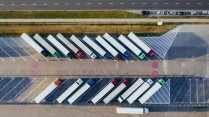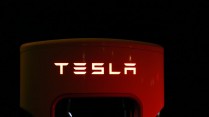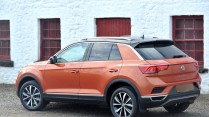Toyota's Hydrogen Future at Risk: Owners File Lawsuits, Call for Action
By Dabbie Davis
Apr 22, 2024 05:21 AM EDT

For many drivers, refueling a hydrogen car becomes an unexpected challenge. Frozen pumps and depleted stations often leave them stranded. Adding to the frustration, hydrogen prices continue to climb, far surpassing Toyota's initial promises. The once-promising Mirai sedan now disappoints numerous owners, casting a shadow on Toyota's reputation. Amidst legal battles and calls for buybacks, the future of hydrogen-electric efforts at Toyota's headquarters appears uncertain.
Unexpected Result
According to Inside EVs, the name "Mirai" holds significant meaning, translating to "future" in Japanese. When Toyota placed a hefty wager on hydrogen as the future of transportation, branding its inaugural hydrogen-powered Fuel Cell EV as the Toyota Mirai seemed a natural choice, aligning with its grand aspirations.
However, reality hasn't aligned with those lofty ambitions. Early adopters quickly discovered that the Mirai didn't embody the idealized future they envisioned. Instead, issues like deteriorating infrastructure and rapid depreciation have led some owners to demand buybacks from Toyota and even pursue legal action. Presently, many of these owners are livid, feeling misled into purchasing a vehicle they believed held immense promise but lacked the necessary fueling infrastructure to fulfill it.
Problems Reported
According to TopSpeed, the Japanese mega-brand finds itself embroiled in a significant controversy, with reports emerging of issues such as frozen hydrogen pumps, a sharp decline in resale values, and escalating fuel costs for Mirai drivers and enthusiasts.
With the 2024 Toyota Mirai on the horizon, there's a significant stir surrounding the previous generations and Toyota's approach to its hydrogen fleet to date. The Mirai, primarily sold in California, boasts a hydrogen-electric powertrain. Unlike conventional charging methods, drivers can refuel at one of the available hydrogen pumps scattered across Southern California whenever their mileage runs low.
Nevertheless, the Mirai has consistently lingered at the bottom of Toyota's sales charts, failing to make a significant impact. The brand has encountered numerous obstacles in its efforts to develop hydrogen infrastructure both in the U.S. and globally.
READ MORE: 2024 Mercedes-Benz CLE Cabriolet Arrives, Redefines Luxury Open-Air Driving Experience
It raises questions about Toyota's ability to expand the Mirai's refueling stations beyond Southern California. The closure of a refueling station in Northern California, specifically in San Francisco, has left drivers stranded. With only one station remaining in South San Francisco, the nearest alternatives are located 40 miles away in Sunnyvale.
As shared in DaxStreet, one owner, Shawn Hall, expressed frustration over the lack of hydrogen fuel availability in his city of San Francisco, despite Toyota continuing to sell Mirais in the area. He highlighted the inconvenience of having to travel long distances to reach the closest refueling stations, which also incur expensive toll charges.
These logistical challenges compound the difficulties faced by Mirai drivers in accessing essential fuel resources. Adding on to the existing concerns, there's also the uncertainty surrounding the availability of fuel at these stations, with no guarantee that they will have hydrogen readily available.
Even when hydrogen stations do manage to stock fuel, there's still potential for problems to arise. The extremely low temperatures required for hydrogen storage can sometimes lead to the freezing of pumps, resulting in prolonged delays for drivers as they wait for technicians to resolve the issue. Consequently, this can cause extensive queues of frustrated motorists unable to proceed to the next station due to dwindling fuel reserves.
RELATED ARTICLE: Toyota Launches 2024 Land Cruiser, A Rugged Hybrid Reimagined
Copyright @ MOTORTIMES, All rights reserved. Do not reproduce without permission.








